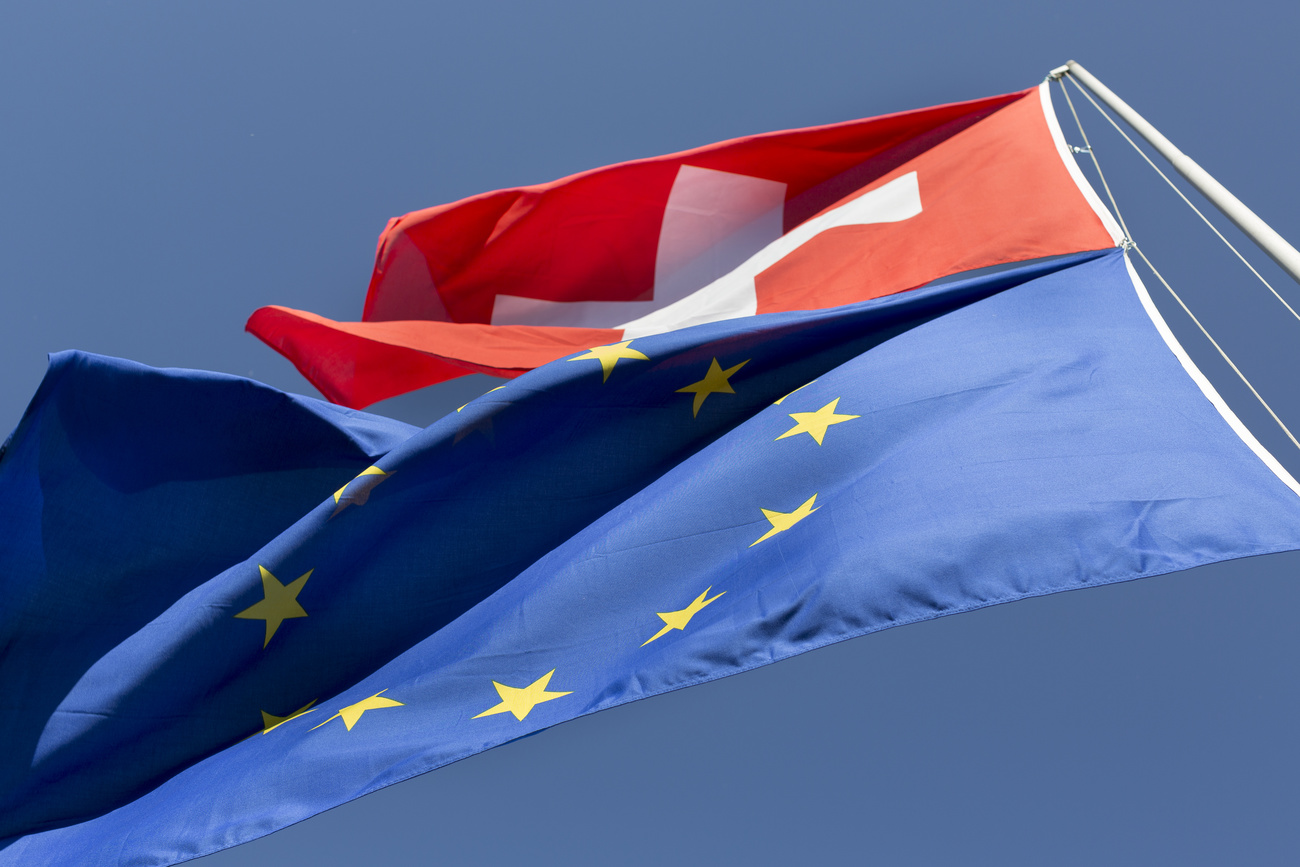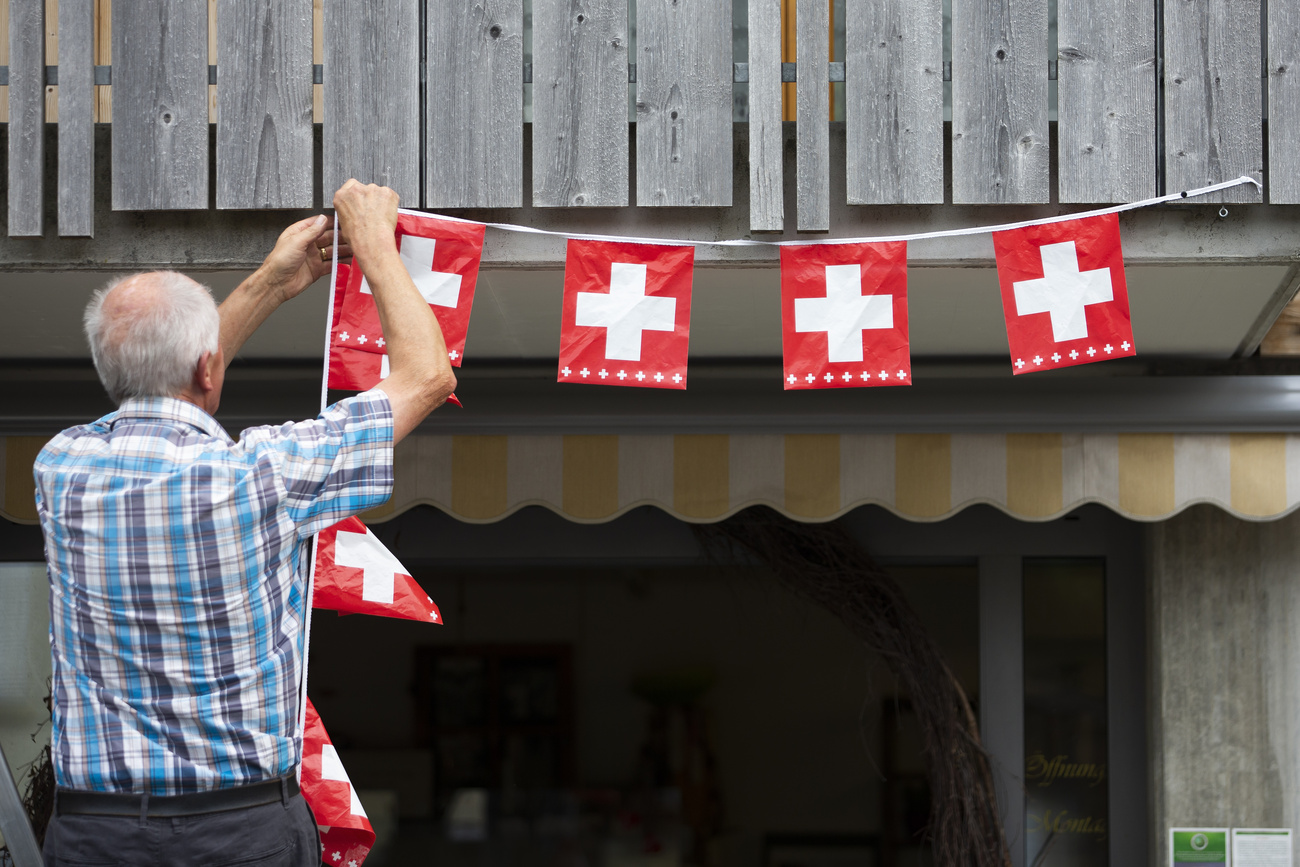
EU not ‘playing for time’ in Swiss talks, ambassador says

The European Union (EU) is not at fault for the current stalled talks with Switzerland on bilateral relations, the bloc’s ambassador in Bern has said.
In the latest round of the tit-for-tat blame game, Petros Mavromichalis told the Tribune de Genève newspaper on Saturday that the EU was not “playing for time”. The bloc was “waiting for the proposal of credible solutions”, he said.
Mavromichalis was responding to comments earlier this month by Switzerland’s top EU negotiator Livia Leu, who said Brussels had been strategically pushing back the timetable in an effort to “apply pressure”.

More
Why is Switzerland not in the European Union?
After a fourth round of negotiations fizzled out on September 9, Leu notably lamented the Swiss non-participation in the EU’s Horizon Europe research programme. But for Mavromichalis, the Alpine Nation doesn’t have a natural right to be part of such a programme, nor to receive stock market equivalence – another source of dispute.
“Switzerland sometimes looks at us like we are a mother and father who have given sweets to all their other children, and not to it,” Mavromichalis said. “But Switzerland is not an [EU] member state, nor is it a candidate country, nor is it part of the European Economic Area. These are sovereign choices made by Switzerland.”
A fifth round of talks, exploring Switzerland’s future contributions to a fund aimed at reducing economic and social disparities between EU member states, will take place on October 12.
Tough topics
Switzerland and the EU have been trying to find a way forward after the Swiss last year rejected an overarching framework agreement to govern long-term ties. In February this year, Bern proposed a package for new talks that would be based on updating individual sectoral agreements rather than crafting an overarching treaty.
On Saturday, Mavromichalis said the EU remains open to this sectoral approach, but only “as long as problems are resolved everywhere”. He also warned that the Swiss “vertical” proposal could lead to a situation which is “at least as complex” as it is today, adding that it wasn’t clear to him which “exceptions” to EU internal market regulations the Alpine nation wanted.
On the Swiss side, the exceptions however are clear: the country is keen to protect its high salaries and social security system. However, this stance runs into problems with the EU’s free movement of people principle, which the bloc is unwilling to compromise on.
Mavromichalis said that while the EU had made concessions in various areas, including on a dispute resolution mechanism, removing free movement from a future agreement would mean “there would be nothing left [in it]”. “When Switzerland participates in our internal market, it has to respect our rules,” he said.

In compliance with the JTI standards
More: SWI swissinfo.ch certified by the Journalism Trust Initiative
















![The four-metre-long painting "Sonntag der Bergbauern" [Sunday of the Mountain Farmers, 1923-24/26] had to be removed by a crane from the German Chancellery in Berlin for the exhibition in Bern.](https://www.swissinfo.ch/content/wp-content/uploads/sites/13/2025/12/01_Pressebild_KirchnerxKirchner.jpg?ver=a45b19f3)










You can find an overview of ongoing debates with our journalists here . Please join us!
If you want to start a conversation about a topic raised in this article or want to report factual errors, email us at english@swissinfo.ch.